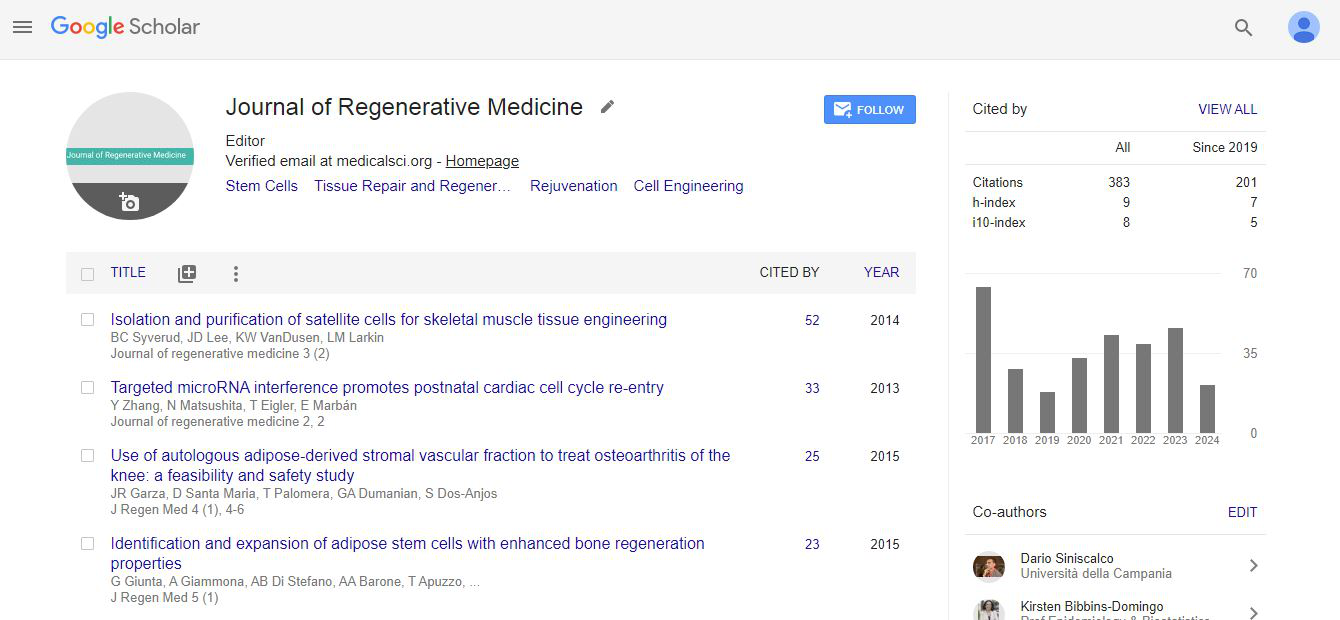Autologous bone marrow stem cell transplantation contributes to exercise capacity recovery after acute myocardial infarction
M.M. Micheu, N. Oprescu, L. Calmac, D. Pitic, A.Scarlatescu, M.Dorobantu
Clinical Emergency Hospital of Bucharest, Romania
: J Regen Med
Abstract
Objective: To assessthe effect of autologous bone marrow stem cell (ABMSC) therapy in patients with ST-segment elevation myocardial infarction (STEMI) and impaired left ventricular ejection fraction (LVEF) as regards exercise capacity. Methods and materials: This pilot study was conducted on 18 patients hospitalized for a first STEMI treated by successful primary percutaneous coronary intervention (PCI) and LVEF < 40%. All the patients have received the standard of care treatment, and were followed-up using the same methods, comprising 6-minute walking test with assessment of heart rate, blood pressure and Borg Scale before and after the test,1 and 3 months after STEMI.In the ABMSC group, 50 ml of bone marrow were harvested 7 to 13 days after PCI. After density gradient separation, the mononuclear bone marrow cell suspension was delivered via intracoronary route in the catheterisation laboratory during the same day. Results: There were no adverse effects related to stem cell therapy during 3 months follow-up period. In stem cells treated group, the 6-minute walk distance increased significantly (from271.14 ± 99.92 m at one month follow-up to 311.57 ± 79.83 mat 3 months after myocardial infarction, P < 0.05), while in control group the improvement didn’t reach the limit of statistical significance(297.18 ± 71.71 m to 330.83 ±47.94,P > 0.05). Conclusions: We observed apositive effectof autologous bone marrow stem cell therapyin STEMI patients with severe systolic function impairmentregarding exercise capacity.Larger studies are required in order to reveal the intimate mechanisms of action and the real magnitude of this favourable effect. Acknowledgement: This paper is supported by the Sectoral Operational Programme Human Resources Development (SOP HRD), financed from the European Social Fund and by the Romanian Government under the contract number POSDRU/159/1.5/S/137390.
 Spanish
Spanish  Chinese
Chinese  Russian
Russian  German
German  French
French  Japanese
Japanese  Portuguese
Portuguese  Hindi
Hindi 